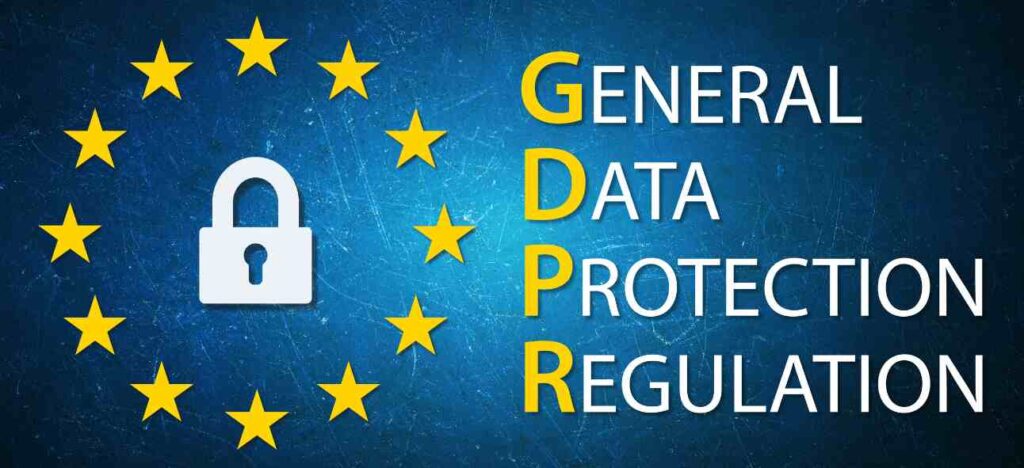If you are starting a new business in Europe or expanding into newer markets in the region, there are some essential regulations you should know about. While some of these vary between countries, all member states in the EU are bound by a few overarching ones. The regulations are:
- Payment Services Directive (PSD2) – to combat fraud and secure payments in Europe.
- PCI DSS – to process card payments in a secure environment and protect cardholder data from misuse
- Anti-Money Laundering Directive (AMLD) – to combat money laundering and terror financing.
- General Data Protection Regulation (GDPR) – to address issues around the storage and protection of personal data by third parties.
Why are payment regulations important?
Europe’s regulatory landscape has evolved, with newer laws coming in over the last decade. As fintech challenged the dominance of traditional banking models, regulation has had to adapt and become more inclusive over time. Another point is Europe’s stance on consumer protection, which is more stringent than in the US or China.
Being complaint is paramount. It helps you be aligned with regulators in a region and also with different tech partners that you will work with. Efficient functioning requires compliance on an ecosystem level. If one link in the chain is weak and fails, it creates a domino effect.
Navigating this complex landscape might seem daunting, but it is manageable if you break it down to the essentials.
Payment Services Directive (PSD2)
The second Payment Services Directive, also known as PSD2, is a set of laws that aim to make online payments safer. It increases consumer protection by using Strong Customer Authentication (SCA).
SCA helps to reduce fraud and increase online payments security. It applies to all customer-initiated online payments within Europe and for online card payments where the business and the cardholder’s bank are in the European Economic Area.
SCA uses two or more factors in the authentication process – a password or PIN, a smartphone, and a biometric scan (fingerprint/ iris/ voice). To apply SCA, merchants need to run the latest versions of 3DS 2, which offers added protection and liability guarantees.
A specialized payment services provider like Novalnet can easily help you set up SCA for all your payments.
2-factor Authentication and PSD2 in Europe: What Merchants Need to Know
PCI DSS
PCI DSS is a global security standard for processing card payments and protecting cardholders from misuse of their personal info. This rule ensures that all companies process card payments in a secure environment. It is governed by the PCI Security Standards Council.
If you store or handle customer card data in any way, you must be PCI DSS-compliant. Security of customer and payment data is crucial and data breaches could badly damage your business and reputation, and invite huge fines and penalties. Non-compliance leaves you vulnerable to all of these. PCI compliance helps you to regularly monitor how data is being handled within your company and identify potential weak points that you can remedy.
Hence, working with PCI DSS-compliant partners is a must.
Anti-Money Laundering Directive (AMLD)
This rule aims to fight money laundering and terrorist financing. Money laundering is defined as the transfer of assets derived from illegal and criminal activity, while terrorist financing means the provision or collection of funds on behalf of a terrorist-related account.
It lays down best practices to reduce anonymity and report any suspicious payment activity. The AMLD is based on “Know Your Customer’ or KYC, and ‘Know Your Business’ or KYB.
KYC requires all firms to verify the identity of each customer before onboarding or accepting payments from them. Transactions that exceed the maximum transaction limits must be reported. KYB requires businesses to screen all prospects and partners prior to undertaking any B2B relationship with them. AMLD also requires businesses to monitor customer transactions and report any suspicious activity.
To align with this rule, merchants must partner with providers who offer the best solutions for KYC/ KYB verification and comply with AML reporting standards.
Follow the recent updates to EU’s AML Directive here
General Data Protection Regulation (GDPR)
This rule is applicable more to data collection than to payments, but still critical to your business anyway.
The General Data Protection Regulation (GDPR) is a legal framework that aims to give European citizens more control over their personal data. It applies to any business operating within the EU or sells to customers in the EU. Under this law, a business has to seek explicit consent from customers before collecting their personal data. They are also responsible for protecting this data from misuse.
Personal data includes any information that can be used to identify the person. This could be a name, a photo, email, bank details, social media posts, medical info, or even an IP address.
GDPR ensures that all companies process such data in a transparent manner with clear consent from customers. Companies must also delete data that is no longer necessary for the goods and services they provide. Third-party partner contracts have to be reviewed to prevent data from being shared or sold without a user’s consent. Failing to comply could lead to strict fines, litigation, and reputation damage.
How can Novalnet Help with Payment Regulations?
We are a global PSP who are trusted advisors to Europe’s leading brands when it comes to payments. Our state-of-the-art technologies and methods help businesses in Europe accept payments globally. From our instant payment plug-ins to our AI-based risk management tools, we have the resources to get you up and running with your payments in a short time, and with zero hassle.
Reach out to us today to know more about how we can help your business.
Jose Augustine is the Chief Business Development Officer at Novalnet with extensive experience in European payment industry and a knowledge powerhouse.
